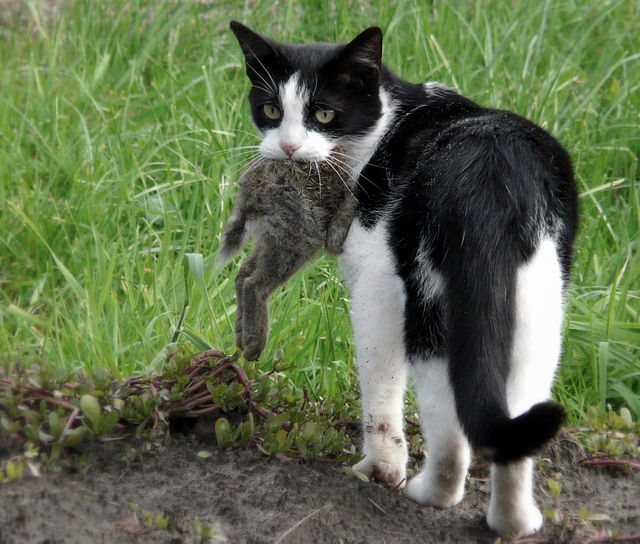Top Qs
Timeline
Chat
Perspective
Hyperpredation
Increased predation pressure by a generalist predator when a new prey species is introduced From Wikipedia, the free encyclopedia
Remove ads
Hyperpredation, also known as hypopredation, is when a generalist predator increases its predation pressure as a result of the introduction of a substitute prey.[1] Hyperpredation has been proven, for instance, in lab settings using two hosts and a parasitoid wasp.[2] Prey that require more handling time than they are worth in terms of nutritional value leads to hyperpredation. In severe circumstances, predators that fed on such prey went extinct.[3][4] Introduced Eastern cottontails cause an apparent competition with the European hare, as a result this along with the red fox being their main predator causes hyperpredation.[5]

Remove ads
Examples
After the invasion of feral pigs, golden eagles (which had inhabited the islands due to DDT wiping out the more territorial Bald eagle population) began preying heavily on the alien species. Another prey on the islands, the Island fox, nearly went locally extinct due to the predation pressure from the golden eagles. These incidents happened in the California Channel Islands.[6]
Causes
Theoretical research indicates that this increased predation may be sufficient to have a demographic impact on prey populations. The empirical data on hyperpredation that are now available are only applicable to situations where the introduction of a feral prey led to an overexploitation of the local prey. The most common cause of hyperpredation is apparent competition between the native and alien prey.[7]
Remove ads
See also
References
Wikiwand - on
Seamless Wikipedia browsing. On steroids.
Remove ads
